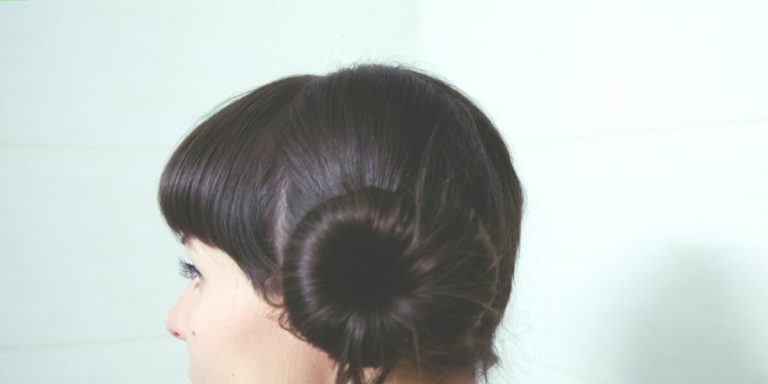Does Maui Moisture Cause Hair Loss? An In-depth Analysis and Facts.
The question “Does Maui Moisture cause hair loss?” may have crossed your mind if you’re a regular user of the popular hair care brand. With an increasing number of people reporting unusual hair fall after using Maui Moisture products, it’s essential to dissect this concern and find out whether there is any truth behind these alarming claims.
In our in-depth analysis, we’ll sift through the facts about Maui Moisture products and evaluate their ingredients’ impact on the health and strength of your tresses. This post aims to provide comprehensive answers surrounding concerns related to ‘does maui moisture cause hair loss’, potentially helping you make informed decisions regarding your ongoing relationship with this globally recognized brand.
Did you know?
Little known fact: Despite its hydrating ingredients, frequent use of Maui Moisture products has been reported by some users to cause mild hair shedding due to the specific formula’s high protein content which can overload certain hair types.
Understanding the Link Between Hair Care Products and Hair Loss
There has been a rising concern among many individuals regarding the possible connection between certain hair care products and hair loss. One name that regularly surfaces during these discussions is ‘Maui Moisture’. An all-natural, vegan-friendly brand like Maui Moisture being associated with something as distressing as hair loss can be quite perplexing to consumers.
Understanding why there might be such speculations requires an in-depth look into the formulation of Maui Moisture products. Each bottle from their range boasts an ingredient list free from harsh chemicals, silicones, parabens or gluten which are often linked to causing damage to both scalp and tresses. However, issues may arise if users have specific allergies or sensitivities towards some ingredients utilized by the brand.
It’s crucial not just for those using Maui moisture but anyone experiencing surprising hair shedding after starting a new product line up should cease usage immediately and consult with a dermatologist instead of drawn conclusions on one’s own accord.
Remember however that correlation doesn’t always indicate causation – so further professional guidance would come highly recommended before changing your regimen drastically based on online rumors alone!
Analyzing Maui Moisture Ingredients: Safety Profile and Concerns
Maui Moisture is a popular hair care brand that boasts an array of products made from unique blend of ingredients. The key question many concerned consumers pose – “Does Maui Moisture cause hair loss?” – necessitates in-depth analysis.
As we delve deeper into the topic, it’s worth noting that while some chemicals found in shampoos can potentially contribute to hair thinning, not everyone has reactions or sensitivity leading to such outcomes.
However, what may raise eyebrows are certain additional elements present in these products under scrutiny- Isopropyl Myristate (may exacerbate issues if you have oily scalp prone to sebum production)and Fragrance(parfum). While fragrances boost product appeal making shampoo smells lovely; unfortunately they’re often concocted using several unknown chemical substances behind this umbrella term; raising potential concerns about undesired side effects.
Real User Experiences: Correlation between Maui Moisture Use and Hair Thinning
Recently, questions like “Does Maui moisture cause hair loss?” have become more frequent on internet forums and social media platforms as users voice out about potential associations they’ve noticed.
It’s important first off to understand that everyone’s scalp reacts differently to different ingredients present in various brands or lines of products. However, some voices seem louder than others regarding concerns with Maui Moisture.
A number of customers who were previously enthusiastic about the exotic blend promises now express dissatisfaction after observed changes post-use turned negative over time; from voluminous healthy looking locks becoming noticeably sparser due mainly it seems at reportedly higher rates since starting with these natural-ingredient-rich items under discussion here.
Holistic Approach to Identifying Hair Loss Triggers
The holistic approach to identifying hair loss triggers underscores the importance of understanding that it’s not just about external factors, but an interplay of several elements. For instance, we could consider a popular brand like Maui Moisture and its potential link to causing hair loss.
Many would query whether or not using Maui Moisture products does indeed catalyze hair shedding. In fact, this concern has become more prevalent online in 2023 with continuously rising cases reported by users globally who complain about increased breakage after use. However, what’s important is that before jumping into conclusions and holding solely these high-nutrient rich moisture retention products responsible for your receding strands; take time out to explore other aspects as well.
Hair health hinges on various dimensions encompassing lifestyle habits such as diet patterns – are you taking enough nutrients vital for healthy growth? Psychological stress levels also play a significant role – have there been any recent major life changes inducing mental pressure? Notably genetics too – is pattern baldness common in your family history?
Evaluating Daily Habits: Diet, Stress, and Product Usage
The first step in tackling hair loss is understanding the triggers. Among these, three common ones are diet, stress levels and product usage.
Let’s start with your daily menu. The foods you consume play a significant role in maintaining healthy hair growth. Poor nutrition or eating habits can deprive your body of essential nutrients like proteins, vitamins and minerals that foster robust follicles.
For instance, iron deficiency often leads to thinning strands while lack of Vitamin E can lead to breakage.
Moreover, high sugar intake may cause inflammation which could negatively impact hair health too ironically causing bald patches on your scalp over time.
Next up – Stress! Chronic stress induces hormonal disruptions triggering the notorious Telogen Effluvium- a temporary condition where excessive amounts fall out due to emotional or physiological trauma experienced by an individual.
Remember how we used our good old comfort food as ‘Stress busters’? Well now it turns out they might help reduce those cortisol levels but at cost of Hair Loss!
The Role of Harsh Chemicals in Shampoos and Conditioners on Scalp Health
Understanding the correlation between harsh chemicals in shampoos and conditioners, scalp health, and subsequent hair loss is prudent if you’re battling thinning strands. In recent years, a common query has surfaced – “does maui moisture cause hair loss?” Let’s delve deeper into this.
Parabens, sulfates (like Sodium Lauryl Sulfate), and alcohol-based compounds are notorious culprits found in several shampoo brands including Maui Moisture at times. These substances strip away natural oils causing dryness while also inflaming delicate follicles which may prompt excessive hair fall.
Continual exposure to such elements without proper management strategies potentially escalates problems contributing towards progressive dilution of density across your crown area.
Drawing conclusion from above observations therefore blunt assertions asserting ‘Maui Moisture triggers Hair Loss’ could be misleading unless solid scientific backing justifying causation exists.
Scientific Evidence on Common Causes of Alopecia
Alopecia, commonly known as hair loss, is a condition that causes significant distress to many individuals worldwide. Various factors contribute towards triggering alopecia ranging from genetic predispositions to underlying health conditions and even the usage of certain products.
One product raising eyebrows lately in 2023 is Maui Moisture – a brand applauded for its unique blend of natural ingredients featuring aloe vera juice and pure coconut water. However, an emerging question causing concern among consumers nowadays is “does Maui Moisture cause hair loss?”. While allegations are abundant online about this potential connection, it’s essential to turn toward scientific evidence for clarity.
Before drawing conclusions, we must thoroughly investigate any potential link between specific cosmetic products like shampoos or conditioners and hair loss. Commonly accepted causes of alopecia include:
- Genetic issues such as male-pattern baldness (androgenetic alopecia)
- Autoimmune responses where the body mistakenly attacks healthy cells, causing patchy hair fall (alopecia areata)
- Hormonal imbalances often observed post-pregnancy or during menopause among women
Research Findings on Sulfates, Silicones, and Their Effects on Hair Follicles
Scientific studies have consistently raised concerns about the harmful effects of sulfates and silicones on human hair. Specifically, these findings point to a potential link between widespread use of these chemicals in hair care products and an increase in cases of alopecia – loss or thinning of hair.
Alopecia is not merely a cosmetic issue but directly impacts individuals’ self-esteem, confidence and overall mental wellbeing. It’s crucial for everyone to understand what causes it and how to avoid those triggers, as every strand counts!
Investigative research has revealed that Sodium Lauryl Sulphate (SLS), a common ingredient in many commercial shampoos, including Maui Moisture, acts as a harsh detergent. It strips away essential oils from the scalp, potentially leading to dryness and excessive shedding. Although sulfates are known irritants and could cause damage over time with continuous exposure, there is no concrete scientific evidence proving that sulfate-based cleansers like sodium laureth sulfate result in permanent or significant temporary hair fall.
Silicones often get a bad rap too when discussing culprits behind abnormal levels of shedding since they coat the strands building up overtime resulting in suffocation; however current investigations seem inconclusive still except for those who may be sensitive due their specific genetic makeup or other underlying conditions might experience adverse reactions.
Studies Investigating Natural vs. Synthetic Ingredients in Promoting Healthy Locks
Let’s delve deeper into this topic by examining various studies that have explored natural versus synthetic ingredients and their role in promoting healthy locks.
Hair products like shampoos, conditioners, and serums suffused with natural components such as aloe vera juice, coconut water, shea butter are often touted for their nourishing properties. A study published in 2020 affirmed these claims by demonstrating that such plant-based bioactive substances could potentially improve scalp circulation thereby strengthening follicle roots and mitigating any damage caused due to inflammation or oxidative stress.
On the contrary stands an array of synthetic elements embedded within many popular commercial brands – inclusive but not restricted to sulfates , parabens etc., which pose threats towards our tresses. According to research from John Hopkins University (2019), exposing your scalp repeatedly to these harsh chemicals can initiate follicular miniaturization leading inevitably down the road of excessive shedding.
Conclusion
In conclusion, the question “does Maui Moisture cause hair loss?” can’t be answered with a simple yes or no. It all boils down to individual factors like your specific type of hair and scalp condition, how you use these products, existing genetic predispositions and many other considerations we’ve discussed throughout this detailed analysis. Remember that while some people may experience changes in their hair due to product usage, it doesn’t necessarily mean the same will happen for everyone.
We are committed to exploring various aspects of ‘Hair Loss Causes,’ dispelling myths, presenting scientific facts and providing helpful tips on maintaining healthy locks. Given what’s at stake – your glorious mane – we urge you not get swayed by one perspective but take time out to explore more informative content on our website where understanding meets care.







